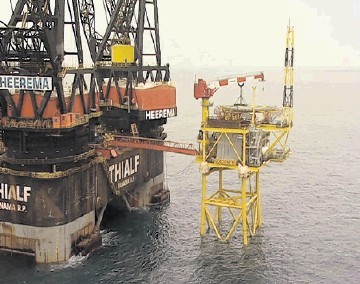
Economic forecasting can be difficult but I like to think I have a good track record. I have produced hundreds of feasibility studies and market research reports, most of which have been reasonably accurate, although there have been a few that were not.
One of the big problems for energy economists is the volatility of prices, notably oil but more recently gas. The price of Brent crude, for example, rose from about $30 per barrel in 2003 to just over $100 at the time of the invasion of Iraq. It then fell back to just over $60 but for most of 2011 and 2012 it has been above $100 again.
Such fluctuations make it very difficult to undertake feasibility studies, notably of new fields which could be in production for 20 or more years. The oil and gas industry therefore must have a long-term perspective of prices and other factors such as development costs.
There is currently a revival in development activity in the North Sea and the main reason for that is of course healthy oil prices. Fields previously deemed uneconomic at $60 per barrel may be very profitable at $100. That is particularly true of West of Shetland fields currently being developed by BP.
I routinely study market research reports. Some of the worst in recent years have been on the UKCS decommissioning market, which has been on a much smaller scale than predicted.
I have some sympathy for the authors of those reports, although I have long thought that they were being overoptimistic, particularly about the timing of decom spending. High oil and gas prices and technological developments have extended the lives of many fields in the North Sea and elsewhere, thus delaying decommissioning.
An excellent example of that is the famous Forties field, which began production for BP 37 years ago in 1975. Now, current operator Apache is installing a new platform in the field as part of a £3billion investment programme designed to enable Forties to produce for another 20 years.
Nevertheless, there now seems much more certainty about the UKCS decom market. Decom North Sea, the industry’s representative body, has been very active in promoting it.
There are two forthcoming conferences on the decom market, one in St Andrews in October and the other in Aberdeen in November. There seems to be considerable overlap between the two, but the respective organisers obviously believe that there will be sufficient demand. St Andrews seems a strange location but Decom North Sea has to be seen as more than an Aberdeen organisation and perhaps some of those due to attend will enjoy a round of golf on the Royal and Ancient.
I am currently working for Shell on the Brent decommissioning programme, which will undoubtedly account for most of the UKCS market over the next 5-10 years. I expect UKCS decom spending to rise from about £490million in 2012 to just over £1billion in 2016, and continue to increase for the foreseeable future. Oil and Gas UK has forecast a £30billion spend over the next 30-40 years.
The DECC Project Pathfinder website currently lists about 20 decom projects. Most are small, in the Southern North Sea and contrast sharply with Brent.
This end of the road market has also to be seen in perspective. Decommissioning will only account for about 4% of total UKCS expenditure during the period to 2016, although that proportion will certainly increase slowly over time. The 4% is tiny in comparison with the predicted capital spending on West of Shetland fields and other new developments on the UKCS.
The UK Treasury recently gave a boost to the industry by making concessions to the tax increases in the 2011 Budget. The latest measures will help provide greater certainty to companies that have acquired mature assets from their original operators.
Oil and Gas UK published a Decommissioning Insight, which should be essential reading for anyone interested in this market. It gives a detailed breakdown of the forecast expenditure.
The main categories will be topsides and jacket removal, the plugging and abandonment of wells and the removal of pipelines. There must be excellent opportunities for innovative ways of reducing the offshore costs, with an obvious example being the use of single-lift vessels.
In contrast, I was very surprised at the small share forecast for onshore disposal work.
Tony Mackay is the MD of energy economists Mackay Consultants
Recommended for you
